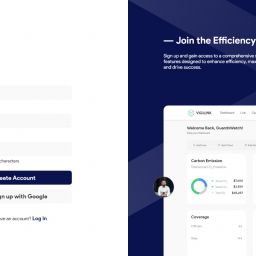Offboarding: The Benefits of Giving Employees a Smooth Farewell
Offboarding, also known as the employee departure process, is often overlooked compared to the more emphasized onboarding phase. However, offboarding plays a crucial role in maintaining positive employee experiences and preserving the employer brand. A smooth and well-structured offboarding process can benefit both the departing employee and the organization. In this article, we will explore the benefits of giving employees a smooth farewell and how it contributes to long-term organizational success.
1. Preserving Relationships and Positive Experiences:
Offboarding provides an opportunity to preserve relationships and leave a positive lasting impression on departing employees. A smooth farewell demonstrates that the organization values and respects the contributions made by the employee. It helps maintain a positive connection between the employee and the company, which can be beneficial for future referrals, collaborations, or even potential rehiring. Positive offboarding experiences contribute to a strong employer brand and a supportive alumni network.
2. Knowledge Retention and Transfer:
During the offboarding process, departing employees have an opportunity to share their knowledge, expertise, and insights with their colleagues. This knowledge transfer helps mitigate the loss of critical information and ensures a smooth transition for the remaining team members. Conducting exit interviews or exit surveys can uncover valuable insights that can be used to improve organizational processes, address any issues, and enhance overall employee satisfaction.
3. Protecting Confidentiality and Security:
Offboarding includes the necessary steps to protect the confidentiality and security of the organization. It ensures that departing employees return company property, hand over access to systems and accounts, and understand their ongoing obligations regarding confidentiality and intellectual property. A well-structured offboarding process minimizes the risk of data breaches, unauthorized access, or the misuse of company resources.
4. Maintaining Employee Engagement and Morale:
Employees who witness a smooth offboarding process for their departing colleagues are likely to have higher levels of engagement and job satisfaction. They observe that their organization values all employees, including those who are leaving. Transparent and respectful offboarding practices contribute to a positive workplace culture, fostering trust and loyalty among the remaining workforce.
5. Positive Impact on Employer Brand:
Offboarding experiences can significantly impact the employer brand. When departing employees have a positive farewell, they are more likely to share their positive experiences with others, including potential candidates and customers. Conversely, negative offboarding experiences can tarnish the reputation of the organization and deter talented individuals from considering employment. A smooth offboarding process demonstrates that the organization cares about its employees’ well-being, even during their departure.
6. Legal Compliance and Risk Management:
An effective offboarding process ensures legal compliance and mitigates potential risks for the organization. It involves addressing legal requirements related to final pay, benefits, and any necessary documentation. By following proper offboarding procedures, organizations reduce the risk of lawsuits or legal disputes that may arise from improper handling of employee departures.
7. Employee Satisfaction and Retention:
Providing departing employees with a smooth and supportive offboarding experience contributes to overall employee satisfaction and retention. When employees feel valued and respected, even during their exit, it enhances their perception of the organization and their overall employment experience. Satisfied departing employees are more likely to speak positively about their former employer and may even consider returning in the future.
Conclusion:
Offboarding is a critical process that should not be overlooked in the employee lifecycle. By giving departing employees a smooth farewell, organizations reap several benefits, including preserving relationships, knowledge transfer, protecting confidentiality, maintaining employee engagement, and enhancing the employer brand. A well-structured offboarding process demonstrates respect, professionalism, and care for employees, even during their departure. It sets the foundation for positive alumni relationships, word-of-mouth referrals, and potential future collaborations. Investing in a thoughtful offboarding experience not only benefits departing employees but also contributes to the long-term success of the organization.
















